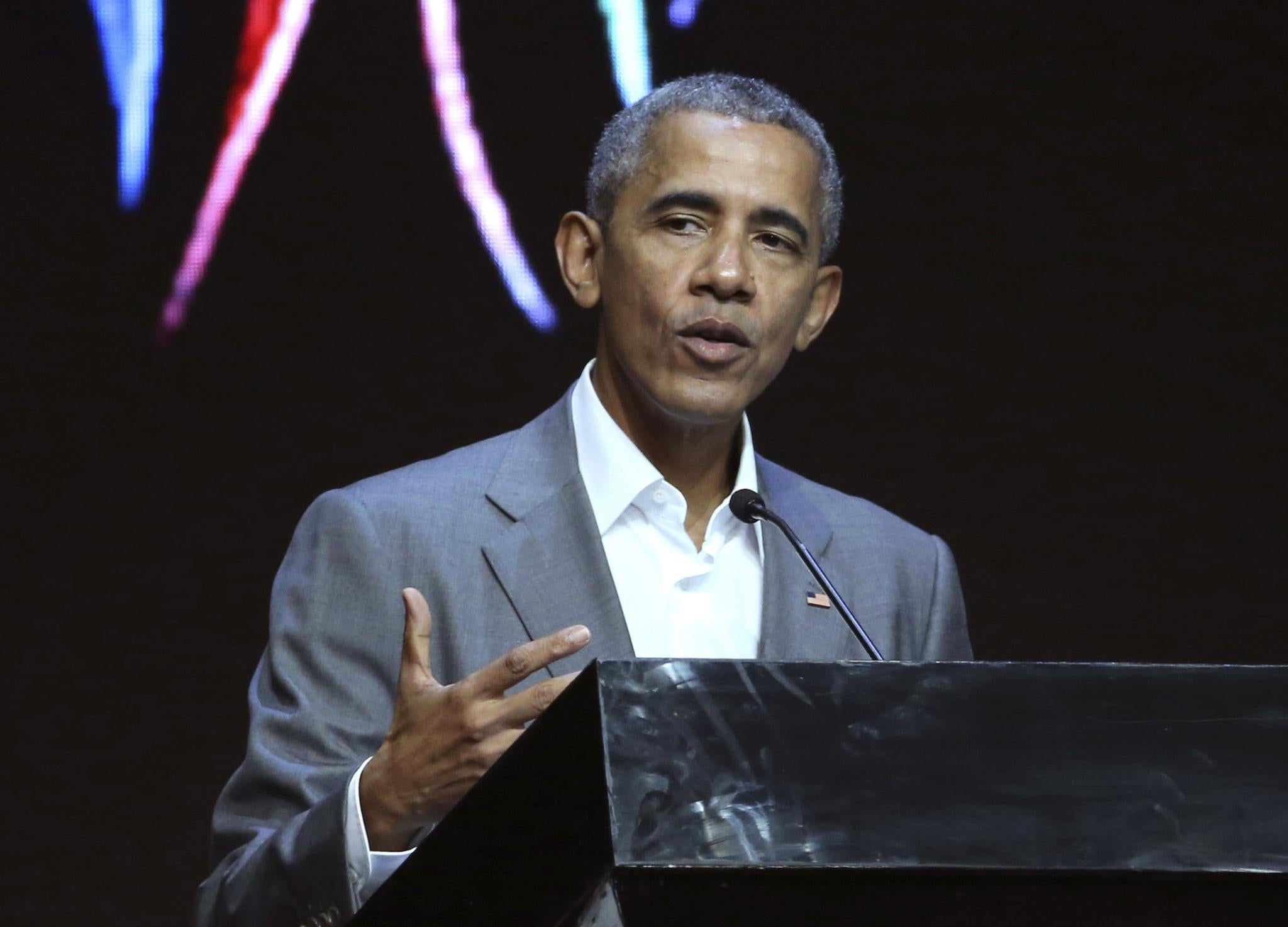Barack Obama to support Democratic campaign against racial and partisan gerrymandering
The Democratic Party is attempting to regain its footing at both the state and federal levels

Less than six months after leaving the White House, former President Barack Obama will return to the political scene by appearing at a fundraiser later this week for a group that aims to address unfair gerrymandering practices around the US.
The group, the National Democratic Redistricting Committee (NDRC), could be instrumental in the Democratic Party’s efforts to regain its footing at both the state and national levels. Over the course of Mr Obama’s eight years as president, the party suffered huge losses that culminated in the election of Republican and billionaire real estate developer Donald Trump as president.
Mr Obama’s appearance at the fundraiser on Thursday at a private residence in Washington, DC will be one of his first on behalf of Democratic party causes since he exited office in January.
At his last press conference as president in January, Mr Obama said that he would only get involved in politics at “certain moments where I think our core values may be at stake.” Since Mr Trump was inaugurated, Mr Obama has issued statements expressing his disapproval of the US withdrawing from the Paris climate agreement, which his administration had helped negotiate, and Republican attempts to repeal and replace one of his signature legislative achievements, the Affordable Care Act.
Tom Perez, the chairman of the Democratic National Committee, said in an interview with the Washington Post that while some Democrats have urged Obama recently, “You’ve got to get out front on issue X or issue Y,” the former US leader instead wants to “build the bench” for the party.
“Because tomorrow’s president is today’s state senator. And he knows that very personally,” said Mr Perez, referring to Obama’s experience as a state senator in Illinois. “When you lose 900 state legislative seats, those are people who could have been the next governors and senators and Cabinet positions, and that is something that he’s very committed to.”
The NDRC is focused on shining a light on the gerrymandering phenomenon that continues to influence elections, especially at the state-level.
In a statement, Mr Obama’s spokesman Kevin Lewis said the former president wants to support the committee’s “efforts to address unfair gerrymandering practices that leave too many American voters feeling voiceless in the electoral process.”
“Restoring fairness to our democracy by advocating for fairer, more inclusive district maps around the country is a priority for President Obama,” Mr Lewis said.
Observers from both of the US’s two main political parties continue to lament about how redistricting has become more pervasive and partisan over the last decade.
The gerrymandering has helped create a polarised political environment, some have said, in which Republicans and Democrats struggle to reach compromises on major policy issues such as healthcare and government spending.
As districts become less competitive, people elected to represent those areas in government move closer to their ideological bases and further away from the political centre, the Brookings Institution – a nonpartisan think tank – has said.
During its next term that starts in the fall, the Supreme Court will consider whether gerrymandered election maps drawn to give a political party an unfair advantage are unconstitutional, which could result in a fundamental change to the way American elections are conducted.
The state of Wisconsin is appealing against a decision finding that the state’s Republican leadership in 2011 pushed through a redistricting plan so partisan that it violated the Constitution.
While the Supreme Court has never found a plan unconstitutional because of partisan gerrymandering, federal courts have previously ruled that maps that employ “racial gerrymandering” are against the law.
In racial gerrymandering, map lines are drawn to lower the influence of minority voters, who tend to vote in favour of the Democratic Party.
Even though both political parties draw congressional and legislative districts to their own advantage, since Republicans control more state legislatures, they have more to lose if the Supreme Court determines that partisan gerrymandering is unconstitutional.
Join our commenting forum
Join thought-provoking conversations, follow other Independent readers and see their replies
Comments
Bookmark popover
Removed from bookmarks